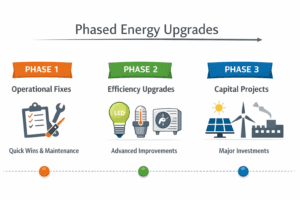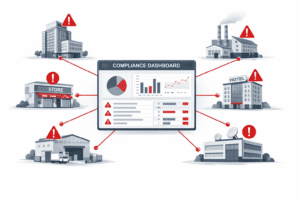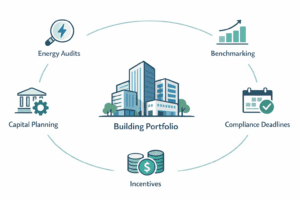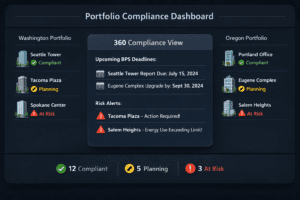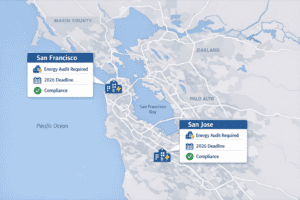Denver Benchmarking: Avoiding 2025 Penalties in Q2
If your property isn’t already on track for 2025 benchmarking, Q2 is your last safe window to fix it. Denver’s energy benchmarking rules are tightening, and enforcement isn’t coming—it’s already here. Mid-year checks are in full swing, and property owners who ignore the Q2 checkpoint risk steep fines, lost incentives, and compliance headaches that stretch into next year.
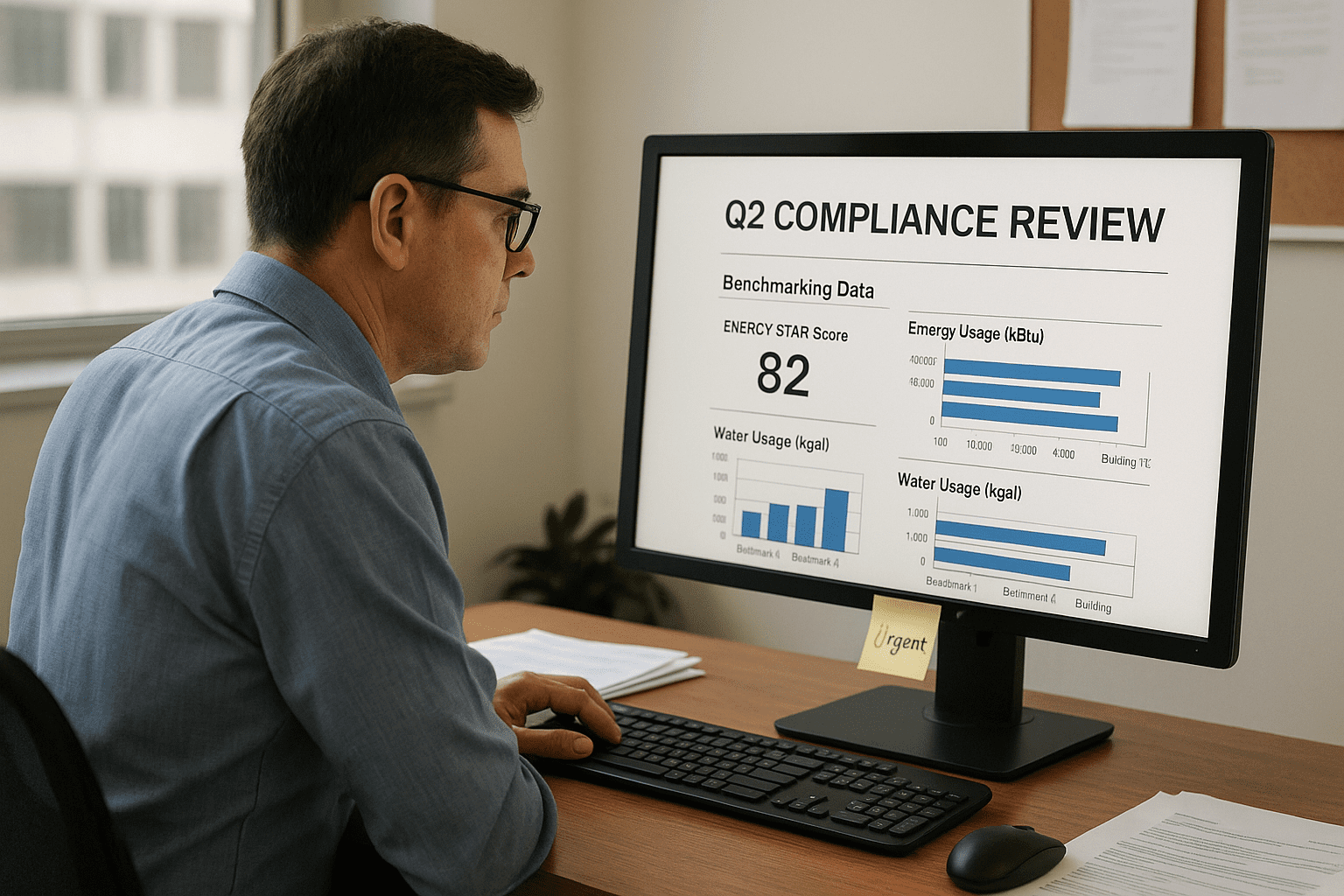
Commercial buildings and large multifamily properties over 25,000 square feet are especially at risk. The city of Denver is now auditing submissions, reviewing missing data, and flagging anything that looks inaccurate. In fact, one property owner was fined over $4,000 this spring for not fixing usage gaps from Q1. That kind of penalty adds up fast. The lesson? Don’t assume your data is fine—verify it now.
In this guide, we’ll walk you through what Q2 means for your property, what deadlines matter most, and how to catch common errors before the city does. Whether you manage an office building downtown, a mixed-use development, or a multifamily high-rise, this is the moment to act.
Why Q2 Matters More Than Ever in 2025
Denver used to focus enforcement at year-end. Now, the city is enforcing compliance earlier—during Q2. If you think you can wait until fall to fix errors, you may already be too late.
Starting in 2025, Denver’s Office of Climate Action, Sustainability, and Resiliency (CASR) is treating Q2 as the final review period for data accuracy. That means buildings flagged in Q1 are already being reviewed, and new fines are being issued in June for properties that didn’t correct problems.
The shift from year-end compliance to mid-year enforcement has caught many property managers off guard. There’s less time to fix mistakes, and less flexibility on late submissions. The city is also increasing its focus on priority emissions zones—areas with dense development, older buildings, and historically high emissions. If your building is in one of these zones, you’re facing extra scrutiny.
The 3-Step Plan to Avoid Denver Benchmarking Fines in Q2

1. Clean Up Your Utility and Structural Data
Start by checking that all utility accounts are connected to your building’s benchmarking profile. Confirm that you’ve uploaded data for the full calendar year for electricity, gas, and any other fuel types. If your building includes parking garages or shared meters, make sure those are documented. Then, cross-check your square footage against city tax records. If you’ve made renovations or changed tenant usage types, update those details immediately.
2. Review the City’s Benchmarking Portal for Flags
Log into the Denver benchmarking portal and check your building’s status. Look for “incomplete,” “pending,” or flagged reports. Pay attention to any city messages asking for corrections. If you used third-party software to submit, don’t assume it was received properly—double-check that submission confirmations were generated and saved.
3. Get a Third-Party Review Before June 30
Even if your team handles benchmarking internally, Q2 is the ideal time for a second opinion. A professional review can catch errors you missed—like duplicate usage entries, outdated square footage, or missing verification details. It also gives you time to correct issues before the final Q2 deadline. Many third-party consultants have direct relationships with CASR, which helps speed up problem resolution.
What Happens If You Miss the Q2 Compliance Deadline?
There are two key Q2 deadlines to keep in mind:
June 1:
The city begins reviewing flagged buildings from Q1 and auditing buildings with incomplete submissions.
June 30:
Final Q2 submission checkpoint. After this date, any errors or gaps will likely lead to fines, with little room for appeal.
After June 30, Denver treats your building’s submission as final. If there are mistakes, missing data, or unresolved flags, your building will move into non-compliance status. That means daily fines (starting at $300 per issue), public listing on Denver’s open portal, and disqualification from valuable rebate and incentive programs.
The financial risk is real. Some property owners have paid over $6,000 in fines simply because they didn’t update one utility account or failed to verify their tenant space information.
Common Errors That Trigger Q2 Audits
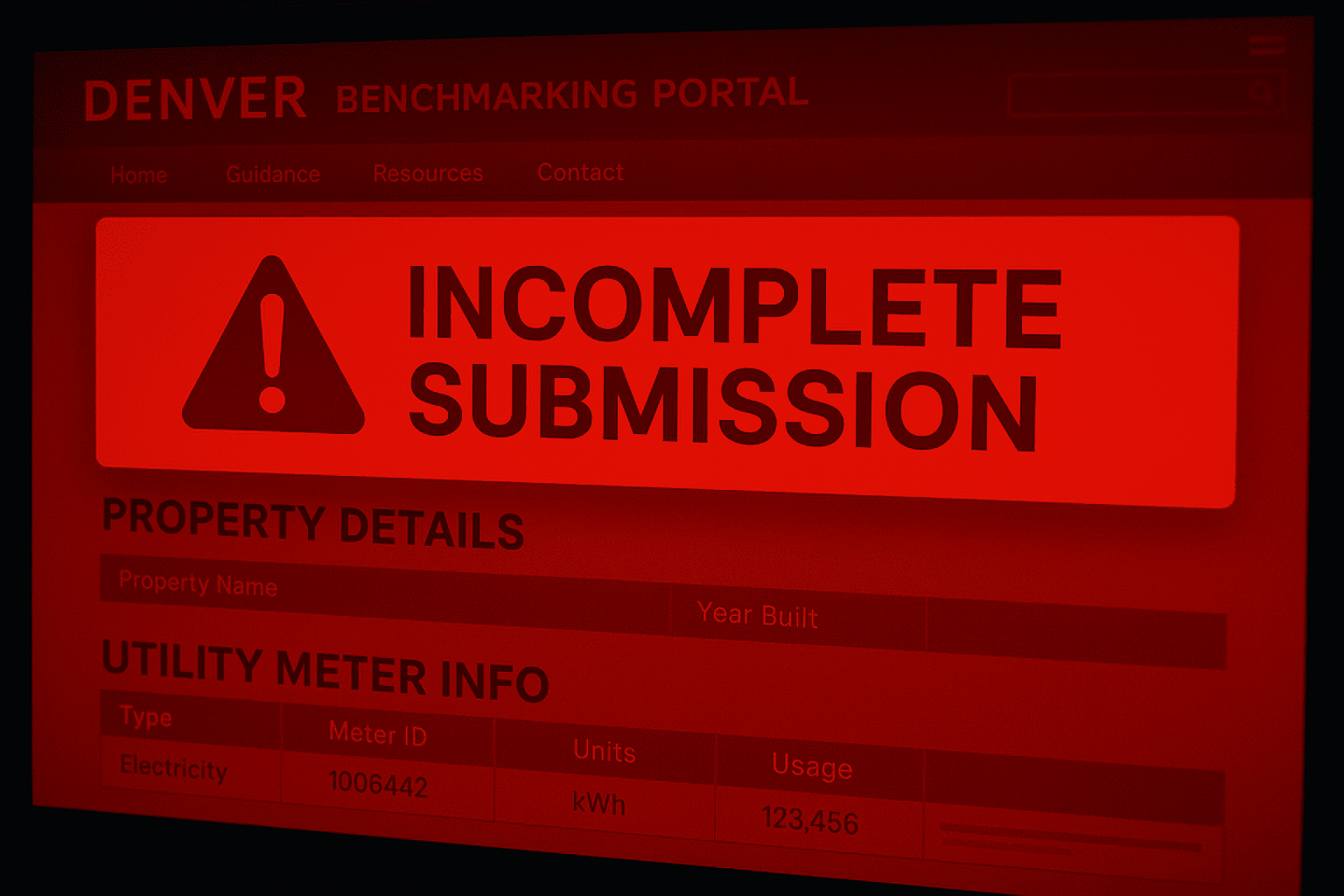
Even well-intentioned property teams can miss details. These are the most common errors flagged by the city during mid-year reviews:
- Missing or incomplete utility data for one or more meters
- Incorrect square footage reported compared to tax or permit records
- Outdated property use classifications (e.g., retail space now used as office)
- Unlinked tenant spaces or blank fields in reporting templates
- No confirmation of submission from third-party benchmarking tools
Fixing these issues in Q2 is your last chance to avoid penalties and preserve your eligibility for support programs.
What You Could Miss If You Wait Too Long
Many of Denver’s energy rebate and technical support programs require verified Q2 submissions to qualify. If your data isn’t clean or complete by June 30, you could miss out on thousands of dollars in rebates or grant funding.
Here are a few programs that require Q2 benchmarking verification:
🔹 Denver Energy Challenge Rebate Pathways
🔹 CASR Benchmarking Technical Support Program
🔹 Xcel Energy Custom Efficiency Rebates
🔹 Low-Carbon Incentive Pilot Grants
Even if you plan to comply later, missing this window means you’re locked out for the year. That’s why accurate Q2 reporting matters—not just for compliance, but for cost savings.
Final Thoughts: Beat the Q2 Deadline and Stay Compliant
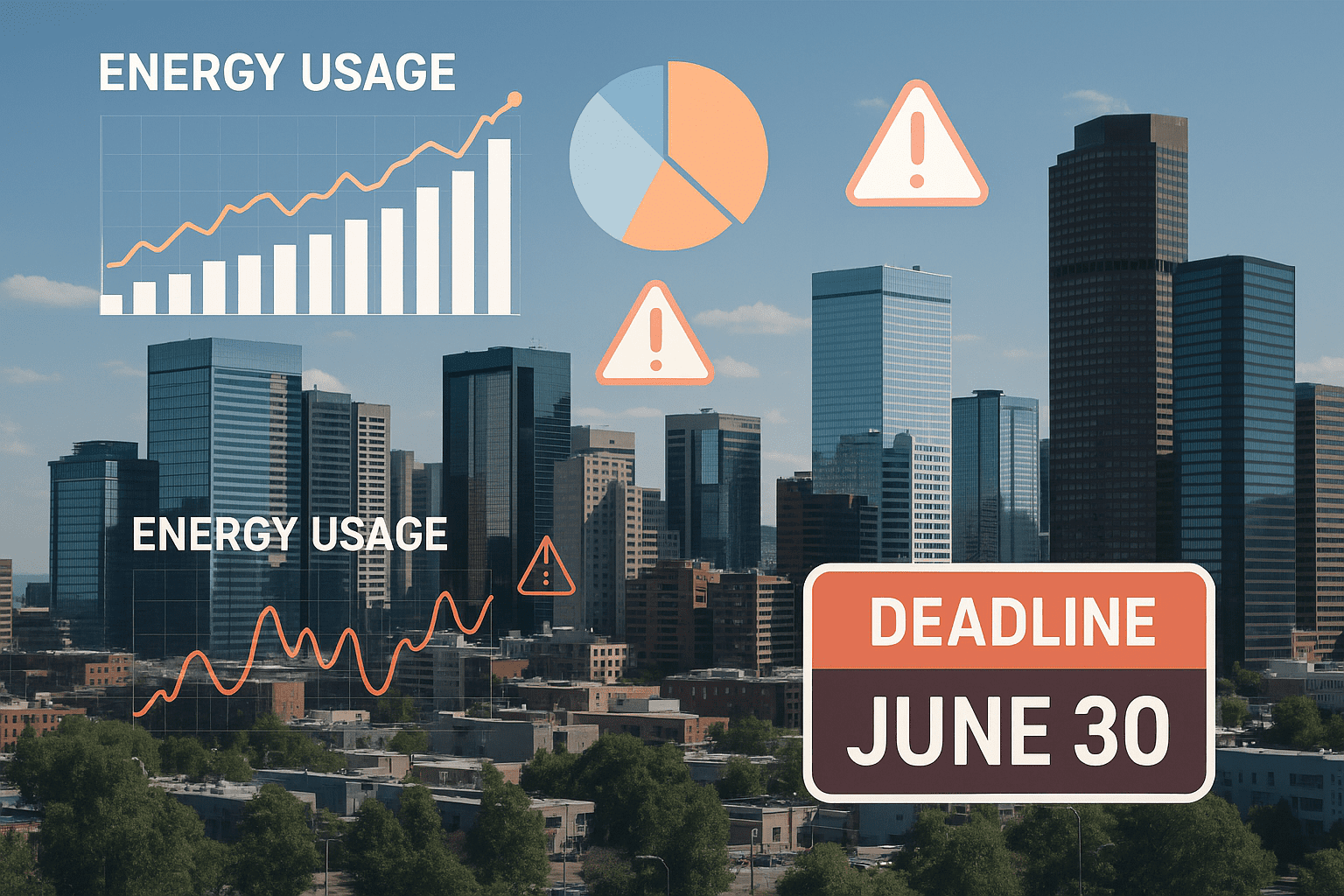
Q2 is no longer just a reminder, it’s the city’s final checkpoint before enforcement. Denver is reviewing submissions now, issuing penalties now, and closing the door on corrections by June 30. If your property has been flagged, the time to act is now.
By reviewing your data, confirming your structure, and getting a third-party review, you can avoid penalties and protect your building’s compliance status. And if you’re aiming to claim energy incentives, verified Q2 benchmarking is your ticket in.
VertPro.com can help you review your submission, identify errors, and provide fast, expert help before time runs out. Whether you need a quick audit or a full benchmarking strategy, their tools and services can keep your building on track.
Don’t risk last-minute surprises. Get ahead of Denver’s Q2 benchmarking deadline today.



